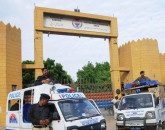Rethinking education
The release of O- and A-level results inspires equal amounts of joy and despair.

The blame for this lies partly with parents who, in a bid to ensure their children’s admission to elite American and British universities, drive their sons and daughters to the brink in the few months leading up to examinations. This leads to a reliance on rote-learning, an outdated mode of teaching that may help get slightly higher marks in exams but does little to develop a child’s critical faculties. It should be kept in mind that ensuring our children have a solid grounding in the classic works of literature and learn the value of inter-personal relationships is more important that an extra A-grade in an examination. In the quest for perfection in examinations, it is also being forgotten that secondary school is not the be-all and end-all of education. It is simply a launching pad for a student’s life. One false landing can easily be corrected later.
In the haze of examination mania, we are also losing sight of the inequalities that plague our education system. From the Intermediate Board and Aga Khan University to popular foreign systems like the A-Levels and International Baccalaureate, the presence of so many different systems causes confusion rather than competition. Local universities have different entrance requirements and students can get lost in the maze of regulations. A centralised system that picks the best aspects of each system is sorely needed for the sake of our students.
Published in The Express Tribune, August 14th, 2010.



















COMMENTS
Comments are moderated and generally will be posted if they are on-topic and not abusive.
For more information, please see our Comments FAQ